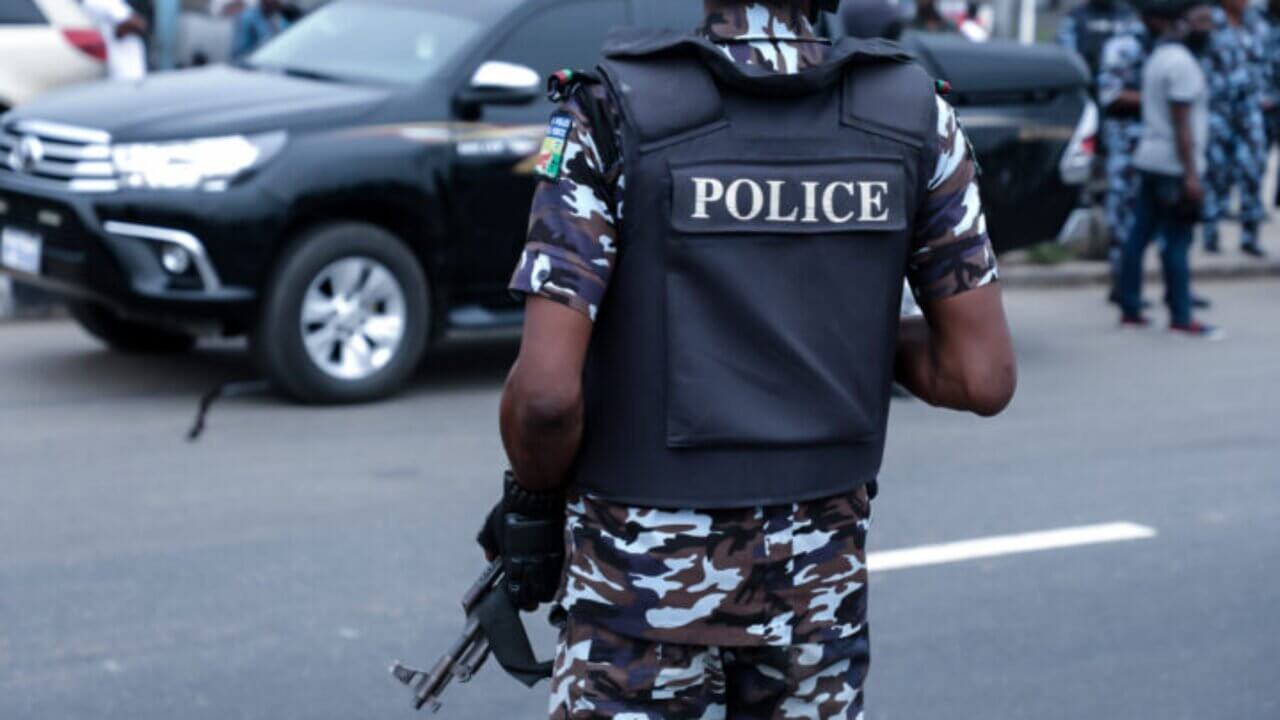In a continent rich with potential yet plagued by insecurity, the quest for safety remains an elusive dream for far too many. In this special report for TCS, Bola Akinloye explores the top ten African countries grappling with soaring crime rates and examines how their citizens perceive their law enforcement agencies amidst a backdrop of chaos and despair. The report also highlights measures being taken to tackle the continent’s rising crime rate, one step at a time
In the beginning, there was a crime
In the shadow of towering skyscrapers and bustling marketplaces, a different reality unfolds in many African cities—a reality marked by fear, violence, and uncertainty. As night falls, the streets that once echoed with laughter and life become silent, save for the distant sounds of sirens and the hurried footsteps of those seeking refuge from lurking dangers.
According to alarming statistics, Africa is home to some of the highest crime rates in the world, with South Africa topping the list with a staggering crime index of 75.4. This grim statistic is not just a number; it represents shattered lives, broken families, and communities gripped by anxiety.
In Angola and Nigeria, where crime indices hover around 66.5 and 66.1, respectively, citizens navigate their daily lives under a cloud of fear, often questioning whether law enforcement is a protector or an adversary. As we delve deeper into this pressing issue, we uncover the stories behind the statistics—voices of citizens who have lost faith in the institutions meant to safeguard them.
From harrowing tales of violent crime to accounts of police corruption and brutality, this report paints a vivid picture of life in some of Africa’s most crime-ridden nations. Experts weigh in on the systemic failures that perpetuate this cycle of violence and distrust, urging prompt reforms that could restore hope to millions yearning for safety and security.
Hidden lives, startling statistics
Africa, a continent of breathtaking beauty and vibrant cultures, is also home to some of the world’s highest crime rates. According to the United Nations Office on Drugs and Crime (UNODC), the top 10 African countries with the highest crime rates are South Africa (47.4 murders per 100,000 people), Lesotho (41.2 murders per 100,000 people), Swaziland (33.8 murders per 100,000 people), Namibia (31.9 murders per 100,000 people), Zimbabwe (28.9 murders per 100,000 people), Botswana (27.8 murders per 100,000 people); Mozambique (26.7 murders per 100,000 people), Democratic Republic of Congo (25.9 murders per 100,000 people), Tanzania (24.9 murders per 100,000 people), and Nigeria (24.5 murders per 100,000 people).
These staggering statistics are a stark reminder of the pervasive nature of crime on the continent. However, what is equally concerning is the growing distrust between citizens and law enforcement officers.
A recent survey conducted by the African Union found that 60 per cent of respondents believed that police corruption was a major problem, 55 per cent stated that they had been victims of police brutality, and 45 per cent expressed a lack of confidence in the ability of law enforcement to protect them. These alarming findings raise fundamental questions about the relationship between citizens and law enforcement officers in Africa.
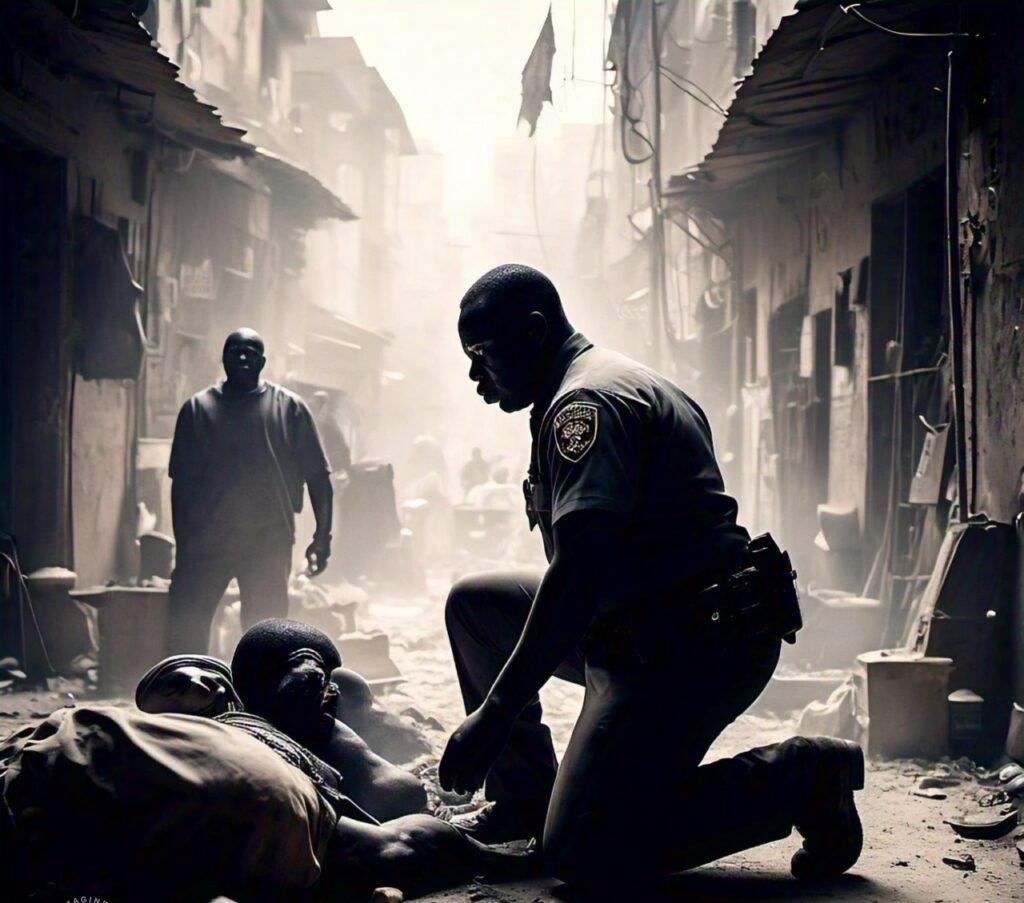
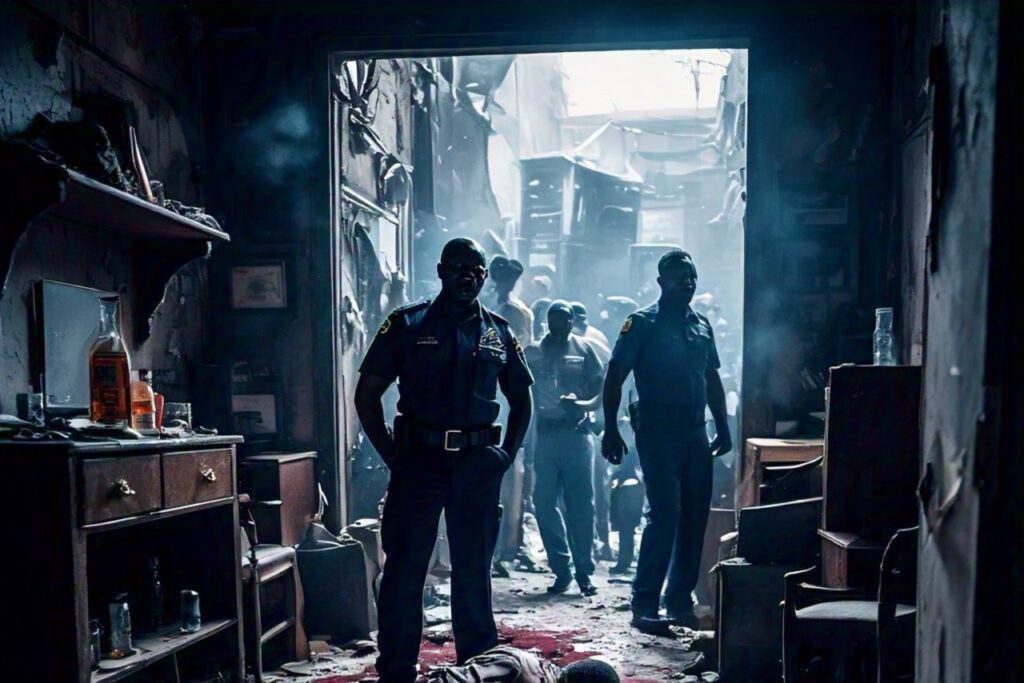
“The police are not our friends,” says Dr Patience Akpan, a criminologist at the University of Lagos. “They are seen as agents of oppression rather than protectors of the people. This perception is fueled by years of corruption, brutality, and impunity.”
Prof Emmanuel Alemika, a renowned expert on policing and security in Africa, echoes Akpan’s sentiments.
“The police in Africa are often poorly trained, poorly equipped, and poorly motivated,” he states. “This creates an environment in which corruption and abuse of power can thrive.”
Experts agree that a multifaceted approach is needed to tackle the crime rate, one that involves reforming the police, strengthening the justice system, and promoting community engagement.
“We need to fundamentally transform the way we police in Africa,” Akpan points out. “This means moving away from a militarised model of policing and towards a more community-oriented approach. We need to build trust, not fear.”
Alemika emphasises the importance of training and capacity-building for law enforcement officers.
“We need to equip our police officers with the skills and knowledge they need to effectively serve and protect their communities,” he says.
As Africa grapples with the challenges of crime and insecurity, Akpan and Alemika’s observations underlie the relationship between citizens and law enforcement officers.
“The future of Africa depends on our ability to create a safe and secure environment for all citizens,” adds Akpan. “This requires a fundamental transformation of our policing and justice systems. We owe it to ourselves, our children, and our communities to make this vision a reality.”
Top Ten African Countries with Highest Crime Rates
| Rank | Country | Crime Index |
|---|---|---|
| 1 | South Africa | 75.4 |
| 2 | Angola | 66.5 |
| 3 | Nigeria | 66.1 |
| 4 | Somalia | 65.2 |
| 5 | Cameroon | 63.9 |
| 6 | Namibia | 63.8 |
| 7 | Mozambique | 63.7 |
| 8 | Zimbabwe | 61.0 |
| 9 | Libya | 60.4 |
| 10 | Ivory Coast | 57.1 |
Corrupt cops
Corruption remains a pervasive and pernicious obstacle to effective policing across Africa, undermining trust and confidence in law enforcement agencies. The alarming rates of police bribery in countries such as Liberia and Nigeria—where a staggering 78 per cent and 75 per cent of citizens, respectively, report paying bribes to police officers—highlight the gravity of this issue. This entrenched culture of corruption forces citizens into a precarious predicament, where they feel coerced into paying bribes to secure police assistance or ensure that their cases receive the attention they deserve. This not only perpetuates a cycle of corruption but also erodes the fundamental principle of equal access to justice, leaving the most vulnerable members of society disproportionately affected.
A recent incident in Nigeria illustrates how deep the cancer of corruption has eaten into the country’s police force, which is representative of several other African countries. A seven-year-old girl was abducted few days before Christmas this year. The distraught and poor mother of the girl rushed to the police for help. The officers on duty demanded a bribe before they would decide to launch a manhunt. They demanded $25.80 (N40,000). It took a social media rage for the police authorities to intervene with a promise to help the woman rescue her girl alive.
“Otta missing girl: The Ogun State Police Command has been on the case. The girl will be found asap. Also, the policemen who demanded money before they could attend to the case have been arrested and kept in detention for disciplinary action,” says Muyiwa Adejobi, the police spokesman, in a statement. “We have condemned such an act, and we won’t tolerate it. It’s inhuman, apathetic, and unprofessional. We urge the family of the victim to work with the police on the case. Thanks.”
Many parents of missing and abducted children have been forced to pay cops to help them search for their kids.
Police corruption is an enduring issue across Africa, severely undermining public trust and exacerbating crime rates in numerous countries. Recent studies, including a comprehensive survey by Afrobarometer, reveal troubling statistics about the state of law enforcement on the continent. These findings highlight the prevalence of bribery and expose the systemic issues that allow corruption to thrive within police forces.
The Afrobarometer report surveyed over 53,000 respondents from 39 African countries between late 2021 and mid-2023 and indicates that police corruption is alarmingly widespread. The survey found that 36 per cent of respondents who sought police assistance in the previous year were asked to pay a bribe, give a gift, or perform a favour. The countries with the highest rates of police bribery included Liberia (78%), Nigeria (75%), Sierra Leone (72%), and Uganda (71%).
In Nigeria, where police corruption is particularly notorious, more than one-third of all bribes paid in the country are directed towards police officers. A separate report revealed that 75 per cent of Nigerians reported having paid a bribe when seeking law enforcement assistance. This pervasive culture of corruption not only erodes public trust but also hampers effective policing, as citizens become increasingly reluctant to engage with law enforcement due to fears of exploitation.
South Africa exemplifies the systemic nature of police corruption. A 2019 report by Corruption Watch identified South African police officers as the most corrupt public servants in the country, with widespread abuse of power and bribery. The Independent Police Investigative Directorate reported that officers killed 538 people during the 2017-2018 reporting year alone, underscoring a troubling trend of violence and misconduct within the force.
Wikus Steyl, a lawyer representing victims of police brutality in Johannesburg, points out that “the trend is systemic and has been institutionalized from the very top.” This sentiment reflects a broader crisis where citizens feel abandoned by those sworn to protect them. The erosion of trust in police extends beyond South Africa; many African nations grapple with similar issues as citizens report increasing instances of police brutality and misconduct.
The consequences of police corruption are profound and far-reaching. As public confidence in law enforcement diminishes, citizens may resort to vigilante justice or choose not to report crimes at all. This creates a vicious cycle where crime flourishes unchecked due to a lack of cooperation between communities and police. Moreover, corruption disproportionately affects marginalized populations. According to Transparency International’s Global Corruption Barometer, 22 per cent of Africans who interacted with public services reported paying a bribe, with poorer individuals being twice as likely to be affected compared to their wealthier counterparts. This disparity highlights how corruption exacerbates existing social inequalities.
Richard Aborisade, a criminologist and researcher, highlights the entrenched nature of police corruption in Nigeria, where officers are often seen as some of the most corrupt in the world. He notes that “corruption has come to characterise the behaviour of the average policeman,” with bribery being a common expectation rather than an exception. Aborisade also mentions that these corrupt practices are visible and institutionalised, making it nearly impossible to hide the extent of corruption. He adds that police corruption wastes resources and alienates citizens from their government, ultimately undermining the rule of law.
Martin Ewi, a technical coordinator at ENACT, focuses on Southern Africa, where police corruption has reached alarming levels. He points out that anti-corruption campaigns must prioritize addressing corrupt police officers to combat the issue effectively.
Ewi explains that corruption among law enforcement agencies is “perhaps the most difficult to tackle,” as those meant to uphold the law often engage in corrupt practices. He recommends rigorous implementation of zero-tolerance policies, including the need for efficient internal and external oversight mechanisms to restore public trust in policing.
Dr. Martin Kinyanjui, a sociologist and community development expert, examines the societal implications of police corruption, particularly how it affects marginalized communities. He notes that “corruption disproportionately impacts those who are already vulnerable,” creating a cycle of poverty and insecurity. Kinyanjui is up for community-based approaches to policing that prioritize building trust between law enforcement and citizens. He believes that empowering communities to participate in policing efforts can help mitigate corruption by fostering accountability at the local level.
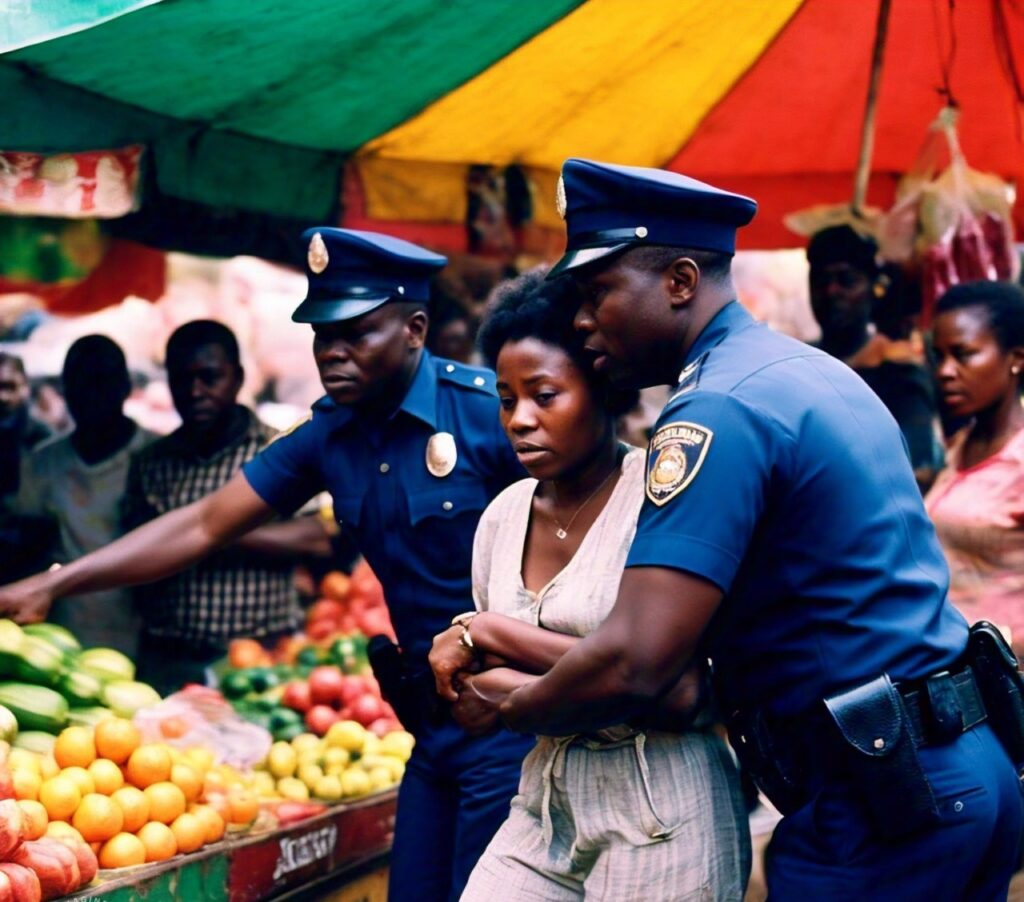
Dr Amina Mohammed, a criminologist at the University of Cape Town, states that “the lack of accountability within police forces fuels corruption and undermines public confidence.” Mohammed suggests increased training programmes focused on ethics and community policing strategies. Also weighing in on the security crisis is Prof John Nkosi, an expert on African governance at the University of Nairobi, who notes that “systemic corruption erodes trust in institutions meant to protect citizens” and suggests that governments prioritise transparency initiatives to rebuild this trust.
Fatou Bensouda, former Chief Prosecutor at the International Criminal Court, emphasises that “effective policing is essential for sustainable development,” warning that economic growth will remain stunted across the continent without safety and security.
The curse and costs of crime
A devastating surge in crime sweeps across Africa, leaving in its wake a trail of destruction, despair, and death. From the streets of Lagos to the townships of Johannesburg, the continent is grappling with an unprecedented wave of violence, corruption, and lawlessness. According to experts, the economic toll of crime on Africa is staggering. In South Africa alone, crime is estimated to cost the economy a staggering five per cent of GDP annually. This translates to billions of dollars siphoned away from vital public services, infrastructure development, and social programmes.
But the impact of crime goes far beyond mere economics. It has a profound human cost, leaving countless victims in its wake. In Nigeria, the Boko Haram insurgency has led to the closure of numerous schools, denying thousands of children their right to education.
“I was forced to flee my home after my family was attacked by Boko Haram militants,” says Aisha, a 17-year-old refugee. “I haven’t been able to attend school in months. It’s like my future has been stolen from me.”
The psychological toll of crime on individuals and communities cannot be overstated. Survivors of crime often suffer from anxiety, depression, and post-trauma, while communities are left to grapple with the aftermath of violence and social unrest.
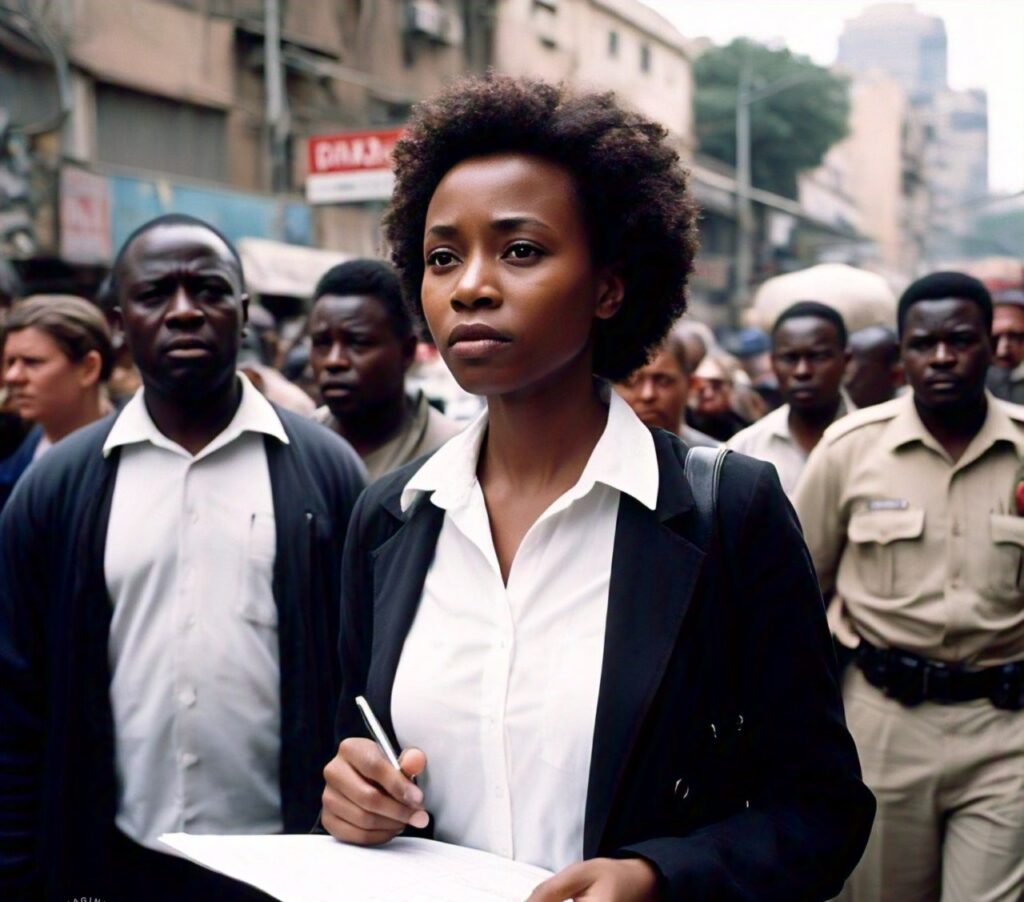
“We’re seeing a growing number of patients seeking treatment for trauma-related disorders,” adds Dr Nneoma Okoro, a psychologist at a Lagos hospital. “The impact of crime on mental health is a ticking time bomb that we can’t afford to ignore.”
As the crime epidemic continues to spread, many Africans are losing faith in their government’s ability to maintain law and order. In Kenya, a recent survey found that only 22 per cent of respondents trusted the police.
“The police are supposed to protect us, but instead, they’re often the ones committing the crimes,” Nairobi resident Jane Mumbi states. “It’s like we’re living in a state of anarchy.”
The international community is also beginning to take notice of Africa’s crime crisis. The United Nations has launched a series of initiatives to strengthen law enforcement and justice systems across the continent. But for many Africans, the response is too little, too late. As the body count continues to rise and the economic and social fabric of the continent continues to unravel, one thing is clear: Africa’s crime epidemic demands urgent attention and collective action.
Africa’s struggle with crime is well-documented, but the far-reaching consequences of this scourge on the continent’s economies and education systems are only beginning to be fully understood. A staggering 10 per cent of South Africa’s GDP is lost to crime each year, according to estimates. This translates to billions of dollars siphoned away from vital public services, infrastructure development, and social programmes. But the economic impact of crime doesn’t stop there. Investors are increasingly wary of pouring money into high-crime areas, leading to declining economic growth and development. Transaction costs skyrocket as businesses are forced to invest in security measures, while property values plummet in neighbourhoods plagued by violence.
The human cost of crime is just as devastating. In South Africa, schools in high-crime areas struggle to provide a safe and stable learning environment for their students. Teachers and pupils alike are often victims of crime, leading to a decline in academic performance and a breakdown in trust between educators, students, and the broader community.
“The impact of crime on education cannot be overstated,” says Dr Grace Akinyemi, a leading expert on education and crime in Africa. “When schools are unsafe, students are unable to learn effectively. This perpetuates cycles of poverty and inequality, undermining the very foundations of our societies.”
Reducing crime rate one step at a time
In Nigeria, the nonprofit organisation Youth Alive Foundation is working to reduce youth involvement in crime through various community-based initiatives. Its founder, Uduak Okon, admits many young people turn to crime out of desperation or lack of opportunities. “So, we’re providing them with alternatives: skills training, education, and job placement programmes,” Okon discloses.
Dr Eddy Nguiffeu Tajouo, a senior lecturer at Université de Dschang, explains that “civil society organisations are involved in raising awareness and advocacy, supporting victims, and caring for vulnerable people such as women and children.” These initiatives empower individuals and create a culture of vigilance and cooperation within communities.

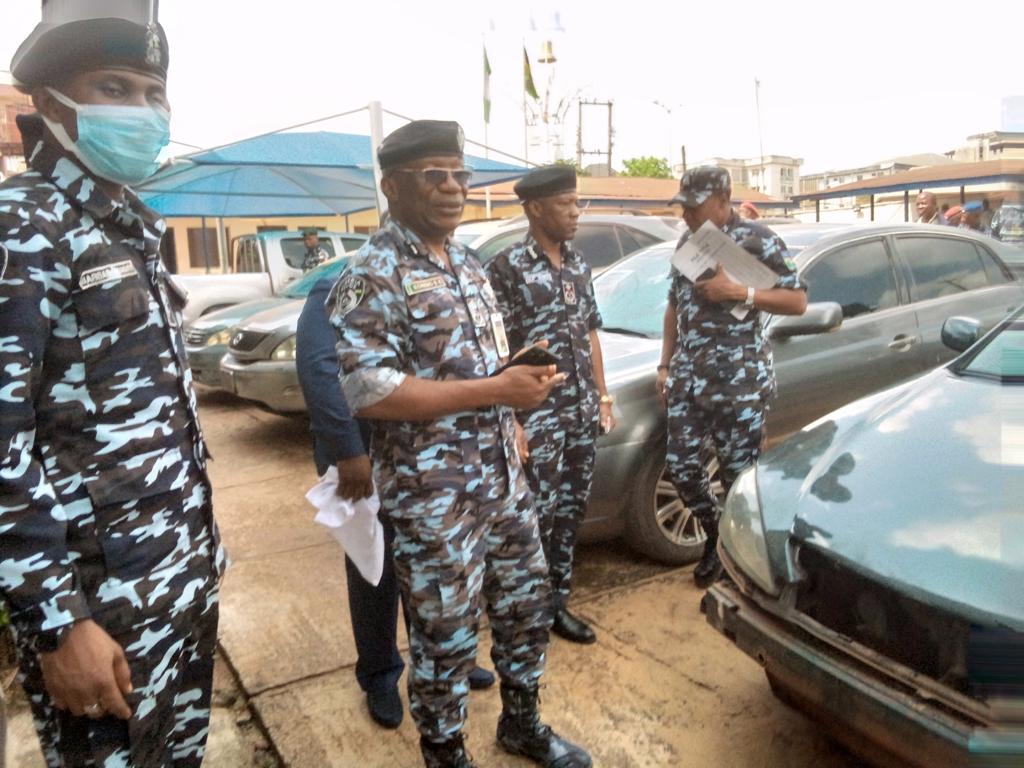
Civil societies are increasingly partnering with governmental bodies and international organizations to strengthen their impact. The Economic Community of West African States has recognised the importance of collaborating with CSOs to develop effective responses to organized crime. In March 2022, ECOWAS launched a regional dialogue addressing transnational organised crime, stressing the need for a multifaceted approach that includes civil society participation. Through initiatives like the West African Research Network on Organised Crime, civil society organisations can contribute valuable insights into local crime dynamics and help shape policies that address these issues effectively.
“Through WARNOC, civil society organisations and experts will be able to contribute not only to the generation of a more holistic understanding of TOC in West Africa but also directly shape better responses to organised crime in the region,” states Clément Boutillier from the EU Delegation to Nigeria.
In South Africa, the Khayelitsha Youth Development Foundation is running a successful mentorship program for young people at risk of involvement in crime. The programme pairs participants with positive role models and provides support and guidance to help them make positive life choices. In Kenya, the National Coalition for Human Rights Defenders advocates for policy reforms to address the root causes of crime. The coalition’s coordinator, Kamau Ngugi, talks about pushing for policies that address poverty, inequality, and social exclusion, the underlying drivers of crime.
“We’re also advocating for stronger laws and enforcement mechanisms to hold perpetrators accountable,” Ngugi adds.
In Ghana, the Commonwealth Human Rights Initiative is working to promote police accountability and transparency through advocacy and community engagement. The organisation’s director, Mina Mensah, reveals that the focus entails engaging with communities to educate them about their rights and to encourage them to report police misconduct. At the same time, the CHRI is “advocating for reforms to the police service to make it more accountable and responsive to community needs.”
In Tanzania, the Pamaja Foundation is using innovative technology to combat crime. The organisation has developed a mobile app that allows citizens to report crime incidents and access support services, leveraging technology to empower citizens and make reporting crime easier.



